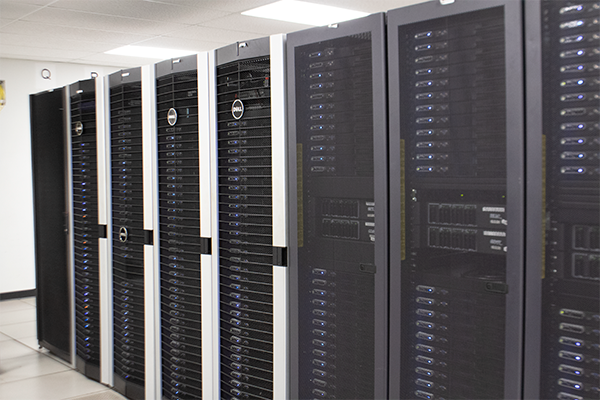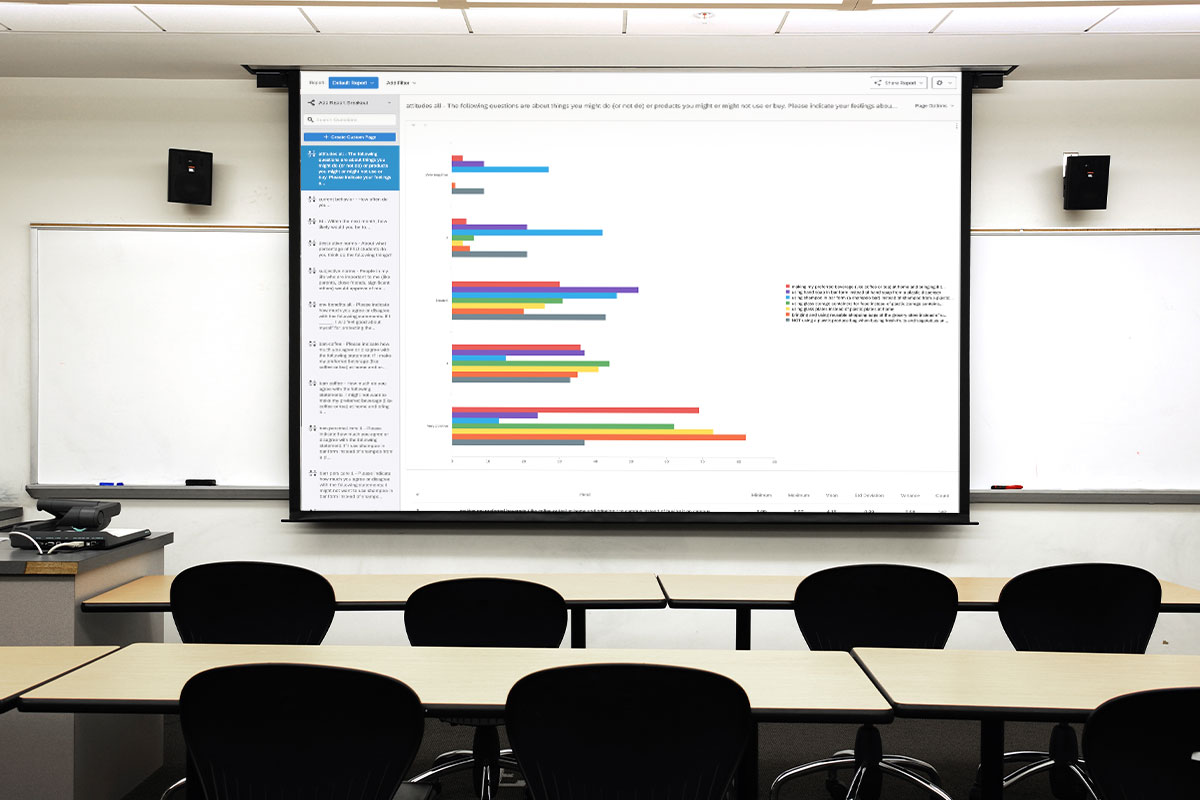Your research is core to the university's mission, and ITS is committed to providing the technology you need to make it all happen.
ITS is dedicated to meeting your unique technology needs. A variety of technologies including high performance computing, parallel storage systems and scientific software are available to support your research.
Grant Proposals
Looking to secure funding for upcoming research? The ITS Research Computing Center (RCC) provides several services to help with preparing grant proposals.
Grant Preparation
Schedule a Consultation
The best way to take advantage of RCC resources when preparing your next grant proposal is to talk to us. Email us or stop by to discuss what resources we offer and if there are collaborative opportunities in your grant for our services.
Use Specialized Language in Your Proposal
If you intend to take advantage of RCC resources in your grant, we have prepared language found in the Facilities Statement section below that you can include in your proposal for the National Science Foundation (NSF), National Institutes of Health (NIH) or other agencies.
Letter of Support or Collaboration
A letter of support or collaboration certifies the principle investigator will have access to the campus resources described in the proposal. The RCC can provide this letter with adequate time allowed for preparation.

Data Management Plan
If your grant agency requires a data management plan, the RCC and our partners at FSU Libraries can help you prepare and manage this plan.

FSU Office of Research Resources
Visit the FSU Office of Research Development for a comprehensive collection of resources available to faculty writing grants at FSU.

Regulatory Compliance
RCC staff can assist researchers in navigating the regulatory compliance issues associated with data storage and retention.
The RCC will assist any research with curation, protection and data workflow. However, final responsibility for any software or research data lies with the owner of the data. Data stored on RCC resources may or may not fall under privacy, security and data retention policies issued by FSU or other regulatory agencies. This includes any data that might fall under HIPAA or FERPA-protection. It is the responsibility of the Principal Investigator (PI) to classify data stored on RCC systems.
The RCC provides several security mechanisms to researchers to protect data from unauthorized access:
- RCC staff create dedicated, access-controlled (POSIX ACLs) volumes for data that resides on RCC shared filesystems; it is the responsibility of the PI to grant or revoke access to these volumes via the RCC website or by requesting RCC staff make ACL changes
- RCC staff will ensure that only users approved by the PI will be able to access data that resides on dedicated storage nodes in the form of regular files or database information
- RCC staff members patch all storage systems with the latest security releases
It is the responsibility of the PI to maintain a list of authorized users that are allowed to access data.
For data that cannot be stored on RCC resources due to regulatory restrictions, RCC staff will assist researchers in acquiring, configuring and managing an alternative solution.
Facilities Statement
For language appropriate in RCC facilities descriptions for NSF, NIH and other agency proposals, please see What text should I include in the facilities statement of my research proposal?
Security Overview
To maintain a safe and trusted compute and data storage platform, the RCC security infrastructure includes the following measures:
- Data center located in a secure facility with restricted access
- System access requires valid and active FSUID credentials
- System access dependent on connection to FSU VPN or physical presence on campus
- Storage systems access restricted to dedicated groups with controlled membership
- Access control list is regularly audited
- Access filters for multiple layers on the RCC network
- Firewall configured for all system nodes
- Adherence to best practices for Linux security measures
- RCC user account required for all users
- Users required to adhere to all rules listed in RCC policies
If your data providers or grant officer requires more specific information regarding RCC security controls, please contact us at support@rcc.fsu.edu.
Research Tools
Explore the technology tools and services that will accelerate your research and breakthroughs.






Publications
Acknowledgments are always welcome.
If the content in your publication is based, even in part, on work performed using RCC resources, please recognize this in the Acknowledgements section of the publication. For example:
The computing for this project was performed on the high performance computing (HPC) cluster at the Florida State University Research Computing Center.
IT Security
Take precautions to keep your computer, mobile devices and data safe.
Beware of Phishing Scams
Phishing scams attempt to steal personal information by tricking you into clicking a link or giving up your username and password. TIP: Check the Phish Tank for a list of known phishing emails targeting FSU.
Secure Your Account
If you think your account has been hacked, take action immediately and follow these instructions to minimize the damage.
Complete Cybersecurity Training
Browse our website for educational resources about ransomware, password security and more. Or schedule instructor-led cybersecurity training for your department.
Get Tech Help
Access expert support for help with all your technology needs.
ITS Service Desk
Tech troubles? We’re here to help. The ITS Service Desk is the first point of contact for assistance with technology at FSU.
Hours | Monday-Friday 8AM-5PM ET
Top FAQs
How do I set up my FSU email on my devices?
How do I connect to the HPC?
What are the storage space options for research data?
How do I request an RCC user account?
Why is my video or webcam not working in Zoom meetings?
What do I need to do after I reset my FSUID password?

